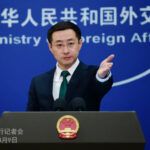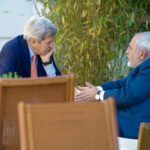The North Korean nuclear test: The South Korean reaction
By Kiho Yi | June 5, 2009
In South Korea last week, not even North Korea’s nuclear test and its subsequent missile launches could overshadow the sad news of former President Roh Moo-hyun’s death. In fact, South Koreans spent most of last week grieving, not angry at Pyongyang for its latest provocation. Such a reaction is the product of a decade’s worth of reconciliation and cooperation between Seoul and Pyongyang that has helped develop a perception in the South that the North is no longer the enemy. Also, the South Korean people tend to regard the North Korean nuclear issue as a diplomatic affair that should be handled as part of the Six-Party Talks and not as a military crisis between Seoul and Pyongyang.
That doesn’t mean the situation won’t change. This nuclear test is much more serious than the North’s first test three years ago, mainly because Pyongyang has abandoned the Six-Party Talks and decided to communicate with the international community strictly with actions–and dangerous actions at that. Also, politically at least, the North-South relationship has begun to deteriorate as new South Korean President Lee Myung-bak has taken a harder stance toward Pyongyang. And while there are hopes that the Obama administration will fashion a new North Korean strategy, the jury is still out as to whether it will be different from the Bush administration in its handling of Pyongyang.
The nuclear test obviously makes an already complicated situation even more complicated–both in terms of the bilateral U.S.-North Korean relationship and North Korea’s relationship with its neighbors. China is in a particularly tough spot. Beijing does not want any military conflict on the Korean Peninsula because it will result in a humanitarian disaster along its border and, most likely, a flood of North Korean refugees into China. Thus, of all of the participants, Beijing has the most initiative to get the Six-Party Talks going again and to serve as the level-headed, pragmatic mediator. (It also means that China is likely to continue to help North Korea in the meantime.) Some people speculate this is why North Korea is preparing its next long-range missile test (presumed to be an intercontinental ballistic missile) in Dongchang-ri near the Chinese border instead of in Musudan-ri near the East Sea, where Pyongyang tested their last long-range rocket on April 5.
But back to the domestic response in South Korea. Like the South Korean public, other than the two hours immediately following the test, the South Korean stock market remained pretty much unaffected by Pyongyang’s actions last week. The country’s most important investors seemed to dismiss the idea of a war between the North and South as unlikely, despite the North’s rhetoric. As for Seoul’s intellectual elite, they have made many political statements this week, but none of them involve North Korea. Instead, these statements involve Lee Myung-bak, as many professors at the country’s major universities want him to apologize for prosecuting Roh and to support the basic rights of expression that make the South a democracy. A few statements from domestic civil society organizations did request that North Korea stop its nuclear program, but that was about it in terms of public outcry.
Politically, the response has been more heated. Some members of the South Korean Parliament have seriously raised the idea of Seoul pursuing its own nuclear capability. Others want to discuss what options the South Korean government should take if the country’s leaders decide the U.S. nuclear umbrella isn’t enough to keep Seoul safe. But again, the South Korean people seem opposed to such actions. According to a recent poll done by Mono Research, 67 percent of everyday South Koreans said that Seoul needs to find a peaceful way in which to solve the North Korean nuclear crisis; only 25 percent answered that South Korea should take a strong stand against North Korean military provocations. So I am hopeful that such popular support for peace will lead to a practical process of denuclearization and disarmament on the Korean Peninsula.
Together, we make the world safer.
The Bulletin elevates expert voices above the noise. But as an independent nonprofit organization, our operations depend on the support of readers like you. Help us continue to deliver quality journalism that holds leaders accountable. Your support of our work at any level is important. In return, we promise our coverage will be understandable, influential, vigilant, solution-oriented, and fair-minded. Together we can make a difference.
Topics: Nuclear Weapons, Opinion














